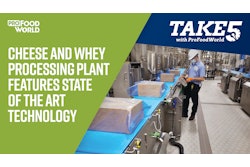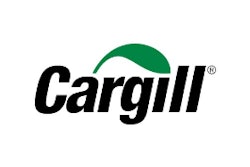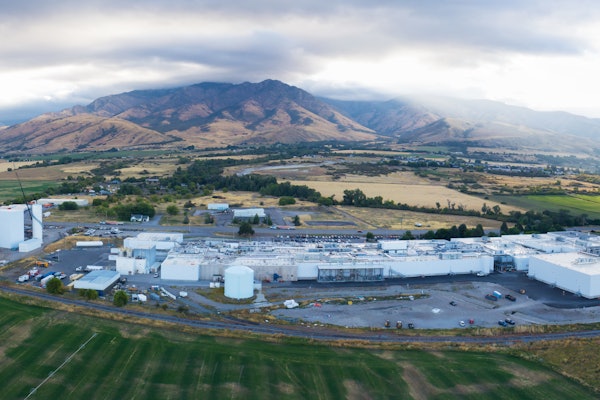Central Michigan has a giant milk supply. In fact, Proliant Dairy Ingredients chose it as the location for the company’s second facility for producing dry ingredients for feed and food applications largely for that reason.
Founded in 1975, Proliant is part of the Lauridsen Group, a privately owned holding company consisting of seven independent companies. Its 100,000-sq-ft greenfield facility in St. Johns, Mich., is located adjacent to the new MWC cheese and whey processing plant. Proliant’s plant provides a needed outlet for the by-product from the adjoining MWC facility.
Maximum return on investment
The site for MWC and Proliant was conceived as part of an agricultural campus. The concept materialized when Proliant agreed to acquire the neighboring site and connect the facilities via a bridge that brings whey permeate from the MWC plant to the Proliant facility. This ensures costs associated with shipping valuable whey permeate are kept to a minimum, providing maximum return for both plants.
The pipe bridge connecting Proliant with MWC is supported by 30-ft diameter caissons, columns, and long span joists, according to Paul Christensen, project executive for Miron Construction. “It stretches approximately 265 ft between the buildings,” he says. “It was critical for the two separate projects to coordinate the orientation of the pipe bridge and start/stop points between the different piping systems including COW [condensate of whey] water, steam, steam condensate, CIP [clean-in-place] return, permeate, and process water.”
Proliant’s other plant in Melrose, Minn., has a similar arrangement with Land O’Lakes. Both Proliant facilities process liquid milk permeate and whey permeate into dry ingredients for feed and food applications.
According to Josh Vander Velden, director of operations for the St. Johns facility, Proliant’s products consist of VersiLac and Proliant 1000, which are high-quality, cost-effective, soluble dairy product solids (whey permeate). “The products are shipped to over 30 countries for food applications, including bakery, confectionery, dairy foods, drink mixes, and prepared foods,” he states. “Feed applications include pig starter diets and calf milk replacers.”
The new plant runs 24/7/365 and includes mix-proof valve blocks, a central CIP system, and a 25-kg Technopak packaging line with Caloris Engineering and Advanced Process Technologies systems handling the permeate transfer from MWC.
The facility features a vertical design with separate equipment and processes on each level. Every level also has two doors that open into two separate operation rooms, simplifying maintenance access. A central control room monitors and runs all operations.
At the 59-ft level, the Relco dryer can be seen, along with the bottom of the bag house’s cones and blower package.
Facility design best practices
According to Christensen, the 14-month construction portion of the project was completed in June 2020. The facility’s design was a collaboration between E.A. Bonelli, Miron Construction, and Proliant, Christensen states. “The collective group came together to implement years of experience and industry best practices for the facility design.”
Shared utilities between Proliant and MWC—and the fact that permeate doesn’t need to be trucked out to a separate facility and, instead, is processed next door—are some of the outstanding sustainability achievements of the project, explains Christensen.
Two of the project’s challenges were managing the unknowns during COVID-19 and maintaining a workplace where employees were comfortable to come to work. “In collaboration with Proliant and the nearby MWC plant, we enacted several measures, including third-party temperature screenings; daily cleaning of the building, trailers, toilets, and all other common touch points; virtual meetings; and FaceTime job walks,” adds Christensen.
World’s largest permeate dryer
Proliant focuses on enhancing value for customers by providing technical support to show how permeate can be used in applications, says Vander Velden. “The market continues to increase as opportunities are identified.” Today, the St. Johns facility is on track to produce 65,000 metric tons per year with state-of-the-art equipment and the world’s largest permeate dryer, supplied by Relco.
PACK EXPO Las Vegas and Healthcare Packaging EXPO (Sept. 27-29, Las Vegas Convention Center) will reunite the packaging and processing community, offering new products, technologies and solutions, while implementing up-to-date protocols for a safe and successful in-person event. Attendee registration is now open.
























